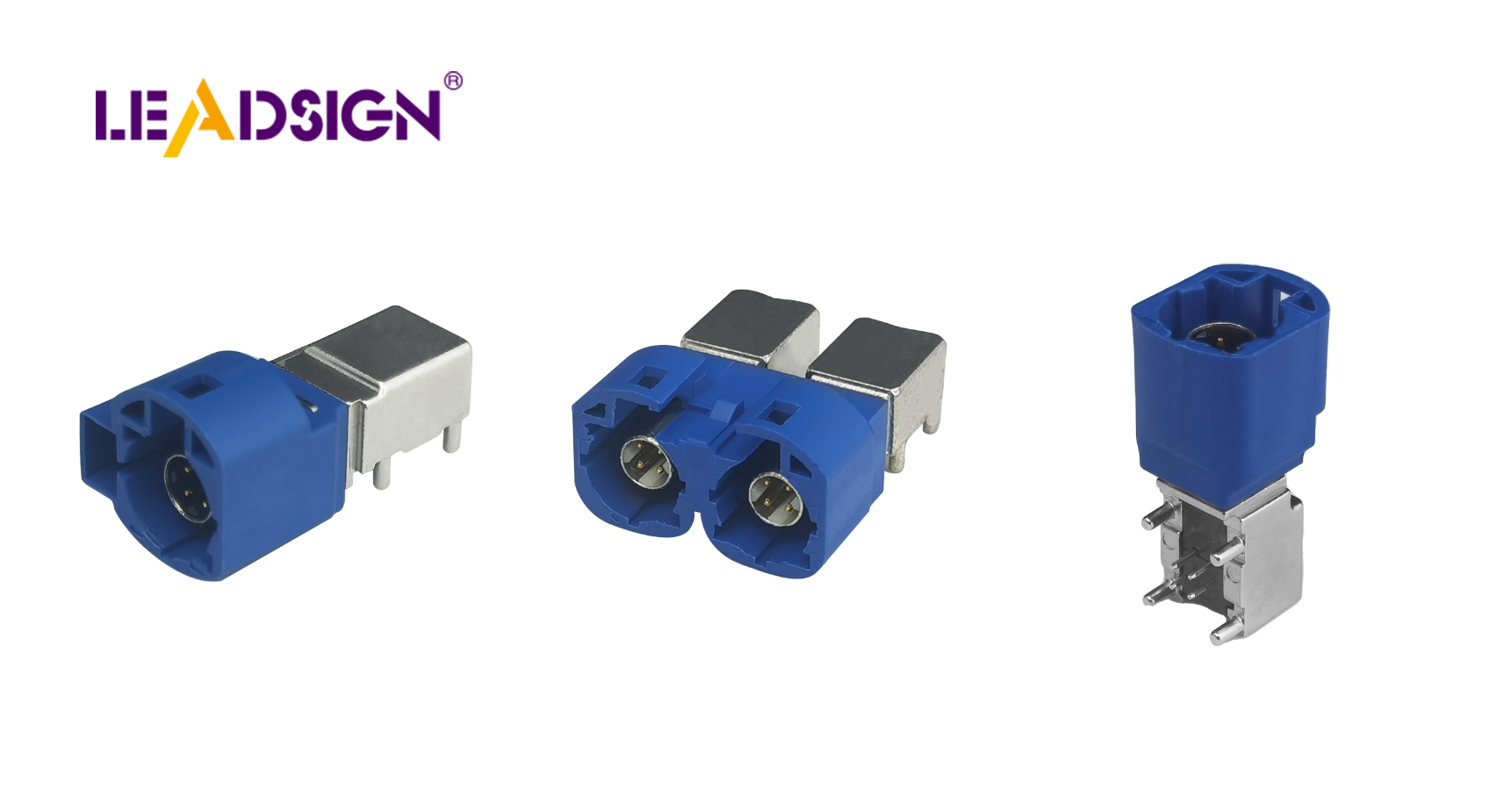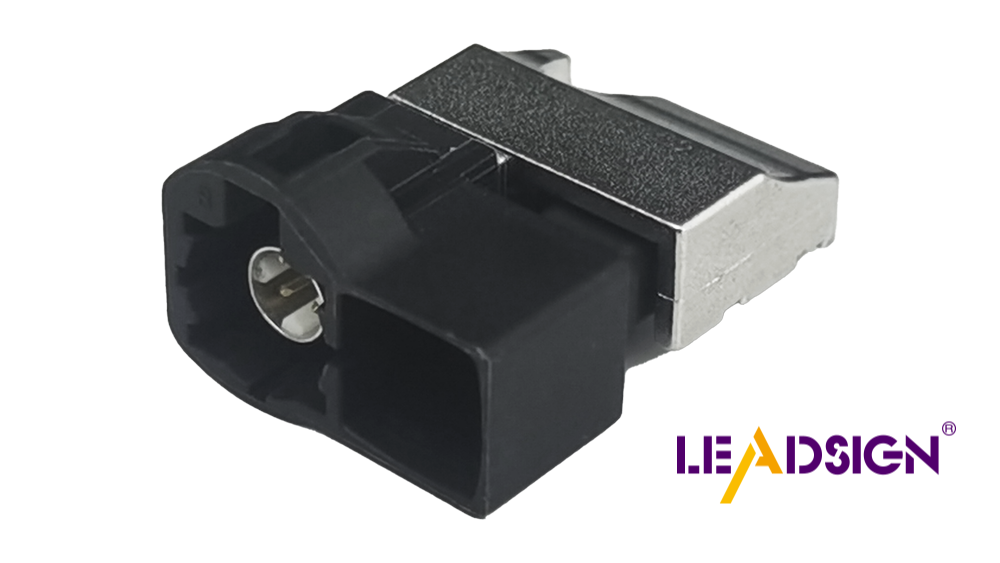What Are the Various Types of Vehicle Connectors?

What are the different types of vehicle connectors? Knowing these connectors is important for anyone working with cars. Vehicle connectors help connect wires and parts. They make sure power moves well through different systems. The global market for car connectors was USD 8.67 Billion in 2023. This shows how important they are. A car usually has about 240 connectors. These parts are key for modern cars to work. As car safety needs grow, more connectors are needed. This is especially true for passenger cars, which make up 70% of the market money.
Key Takeaways
Vehicle connectors are essential for connecting wires and parts, ensuring efficient power and data flow in modern cars.
There are several types of connectors, including electrical, data, power, and specialty connectors, each serving specific functions.
Understanding wire-to-wire, wire-to-board, and board-to-board connectors is crucial for maintaining and repairing vehicle systems.
Data connectors like USB and Ethernet are vital for modern car technology, enabling device connectivity and fast data transfer.
Power connectors, including battery and charging connectors, are critical for the reliable operation of a vehicle's electrical systems.
Specialty connectors, such as sensor and coaxial connectors, play key roles in vehicle safety and performance by facilitating communication between sensors and the car's computer.
Choosing the right connectors is important for vehicle efficiency and safety, especially as automotive technology continues to evolve.
Types of Electronic Connectors in Vehicles

Knowing about electronic connectors in cars is important. They help car parts talk to each other. This makes cars work better and more efficiently. Let's look at the different connectors used in cars.
Electrical Connectors
Electrical connectors join wires and parts in your car. They come in different types, each with a special job.
Wire-to-Wire Connectors
Wire-to-wire connectors join two wires together. They are used in fixing cars to make sure parts work right. They are easy to install and are often used in cars.
Wire-to-Board Connectors
Wire-to-board connectors link wires to a circuit board. They send power and information to car parts. They keep connections strong so car systems can talk to each other.
Board-to-Board Connectors
Board-to-board connectors join two circuit boards. They help move data and power well. These are important in advanced engines for good performance.
Data Connectors
Data connectors help move data between car systems. They are key for modern cars that need electronic communication.
USB Connectors
USB connectors in cars connect devices like phones. They help transfer data and charge devices, making things easy for users.
Ethernet Connectors
Ethernet connectors help move data fast in cars. They are used in high-tech car systems like entertainment and self-driving tech.
Power Connectors
Power connectors give power to car parts. They make sure car systems work well and reliably.
Battery Connectors
Battery connectors link the battery to the car's system. They handle lots of power to keep car parts running well. They are key for the car's electrical systems.
Charging Connectors
Charging connectors link the car to a power source. They are important for electric cars to charge the battery safely.
By knowing these connectors, you see their role in cars. They help car systems talk and work well, making cars reliable and efficient.
Specialty Connectors
In cars, specialty connectors are very important. They help your car work well. These connectors have special jobs. They are needed in today's cars and trucks. Let's look at two main types: sensor connectors and coaxial connectors.
Sensor Connectors
Sensor connectors are key parts in your car's system. They connect sensors to the car's main computer. This helps send data correctly. These connectors make sure sensors, like those checking engine heat or tire air, talk to the computer. This is important for good performance and safety.
Automotive Terminals: Sensor connectors use special car terminals. They keep connections safe and strong. These terminals can handle tough car conditions, like heat and shaking.
Connection Types: Sensor connectors have different connection types, like crimped and soldered. These choices make it easy to set up and fix, keeping sensors working.
Coaxial Connectors
Coaxial connectors are another special type in cars. They send high-frequency signals. They are great for GPS, satellite radio, and car entertainment. Coaxial connectors send signals clearly, with little interference.
Heavy-Duty Applications: Coaxial connectors are made for tough jobs. They work in both cars and trucks. They are strong and fit for modern car tech.
Battery Terminals: Sometimes, coaxial connectors work with battery terminals. They give power to certain electronic parts. This shows their usefulness in cars.
Knowing about specialty connectors helps you see how complex cars are. These connectors make sure your car's systems work smoothly. They help make driving safer and more fun.
Choosing the right connectors for vehicles is very important. They help your car work well and stay safe. Different connectors do different jobs. Some have many pins, while others send data fast. As technology gets better, new connector trends appear. These trends make cars run better and safer. Knowing about these changes helps you pick the best connectors. This way, your car can work smoothly and efficiently.
FAQ
What are the main types of vehicle connectors?
Vehicle connectors have different types for specific jobs. The main ones are electrical, data, power, and specialty connectors. Electrical connectors join wires and parts. Data connectors help systems talk. Power connectors move power safely. Specialty connectors do special tasks like linking sensors.
How do Type 2 plugs differ from CCS connectors?
Type 2 plugs and CCS connectors charge differently. Type 2 plugs are for slow charging, good for home use overnight. CCS connectors charge faster, great for quick stops at public stations.
Why are passenger cars significant in the automotive connector market?
Passenger cars use the most connectors. They need many connections for different systems. As safety and tech grow, more connectors are needed in these cars.
What makes Tesla's Low-Voltage Connector Standard (LVCS) unique?
Tesla's LVCS is simple. It uses only six connectors, unlike others with over 200. This makes electric cars less complex and more reliable.
How do wire-to-wire connectors function in vehicles?
Wire-to-wire connectors join two wires securely. They are key for fixing cars, especially electronic parts. They are easy to use and make strong links.
What role do USB connectors play in modern vehicles?
USB connectors in cars connect devices like phones. They help move data and charge devices, making things easier for users. They are common in car entertainment systems.
Why are battery connectors crucial for vehicle operation?
Battery connectors link the battery to the car's system. They handle lots of power to keep car parts running well. They are key for the car's electrical systems.
How do sensor connectors contribute to vehicle safety?
Sensor connectors link sensors to the car's computer. They send data right, helping check things like engine heat and tire air. This keeps the car safe and working well.
What are the benefits of using coaxial connectors in vehicles?
Coaxial connectors send high-frequency signals clearly. They are used in GPS, satellite radio, and entertainment systems. They are strong and good for tough jobs in cars.
How do charging connectors impact electric vehicle performance?
Charging connectors link the car to a power source. They charge the battery safely and efficiently. Picking the right one helps the electric car work better.
See Also
Enhancing Vehicle Data Flow With Superior Connectors And Cables
Understanding HSD Connectors Essential For Automotive Applications
Transforming Vehicle Connectivity Through Benefits of HFM Connectors
Significance of Fakra Connectors For Today's Automotive Technology

